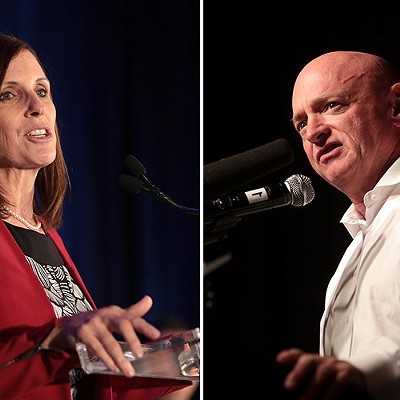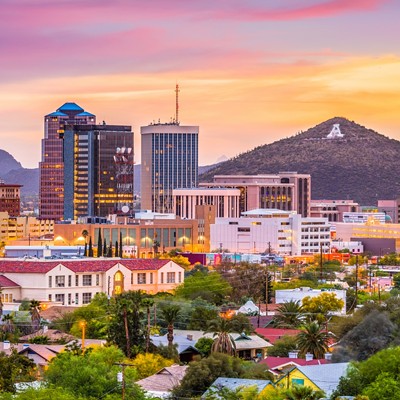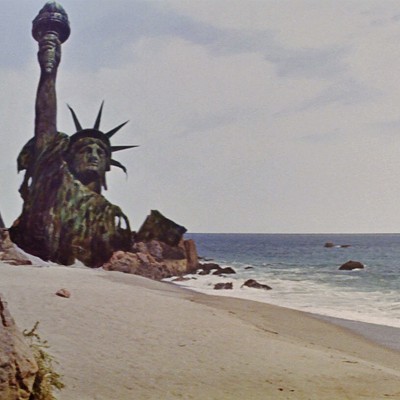It might seem odd to think of Tucson as a "Cool City," but that's exactly what it is. Or at least could be, with your help.
In June 2006, Mayor Bob Walkup signed the U.S. Mayors Climate Protection Agreement, which was initiated by Seattle Mayor Greg Nickels in 2005 in response to federal inaction on the issue of global warming--specifically the U.S. government's refusal to sign the Kyoto Protocol. Rather than rely on the federal government to make progress on this issue, mayors across the country decided to address it at the local level.
The Cool Cities Campaign is a Sierra Club initiative to work with cities to initiate the action necessary to reduce greenhouse-gas emissions and create sustainable communities.
The debate over global warming is no longer a debate. Jonathan Overpeck, director of the UA's Institute for the Study of Planet Earth, says: "The science is now clear that global warming is a given, and that humans are causing most of this warming."
It is not a question of if there will be repercussions, but rather how much damage will be done. "In the Southwest, there is good reason to be worried--almost all of the climate models project a drying out of the Southwest into the future, a process that seems consistent with what has already been happening," Overpeck says. It doesn't take much to grasp the economic and ecological consequences of warmer weather and continued drought, from increased demand on already strained water and energy resources to the dying off of unique Sonoran Desert plant and animal species.
It's a bleak picture, but it's not hopeless. That's why our local Cool Cities Committee was formed--to work with the city of Tucson, the mayor's office and the community to take steps to change our culture of energy use and our vision of the future. We must be responsible for change at every level--starting with the individual--to reverse this trend. And while global warming is certainly a drastic problem, if we think only in drastic terms, we'll likely feel overwhelmed--everyone can do something to help.
Here are some easy ways to get started: Switch to compact fluorescent (CFL) light bulbs. According to the Sierra Club, "If every household in America switched just five light bulbs from standard incandescents to CFLs, it would be like taking 8 million cars off the road." CFLs fit in regular sockets and give off the same warm light as old-fashioned light bulbs. While more expensive, they last much longer than regular bulbs--plus you'll save on the electric bill.
Hang laundry out to dry. In Tucson, there's really no reason to use a dryer--remember that pizza-oven wind? It works perfectly. Stick some fabric softener in with the wash to cut down on that crinkly feeling.
Drive less. Walk, bike or take the bus whenever you can. For most of the year, Tucson is an ideal place to ride a bike to work or on errands. And the fresh air and exercise will leave you feeling invigorated.
Buy local foods. When we buy grapes from Chile, a lot of gasoline has gone into getting them here. Check our local farmers' markets or the Food Conspiracy Co-op on Fourth Avenue.
Set your water heater to no more than 120 degrees, and wash your clothes in cool water when possible.
Vote for candidates who take global warming seriously, and let them know how you feel. Make your voice heard at every level--local, state and federal.
Sometimes thinking about the big picture can be overwhelming, especially when faced with such a massive problem. But there are concrete actions we can all take, and bit by bit, we'll make a difference. I think we all agree that it doesn't need to get any warmer around here.










